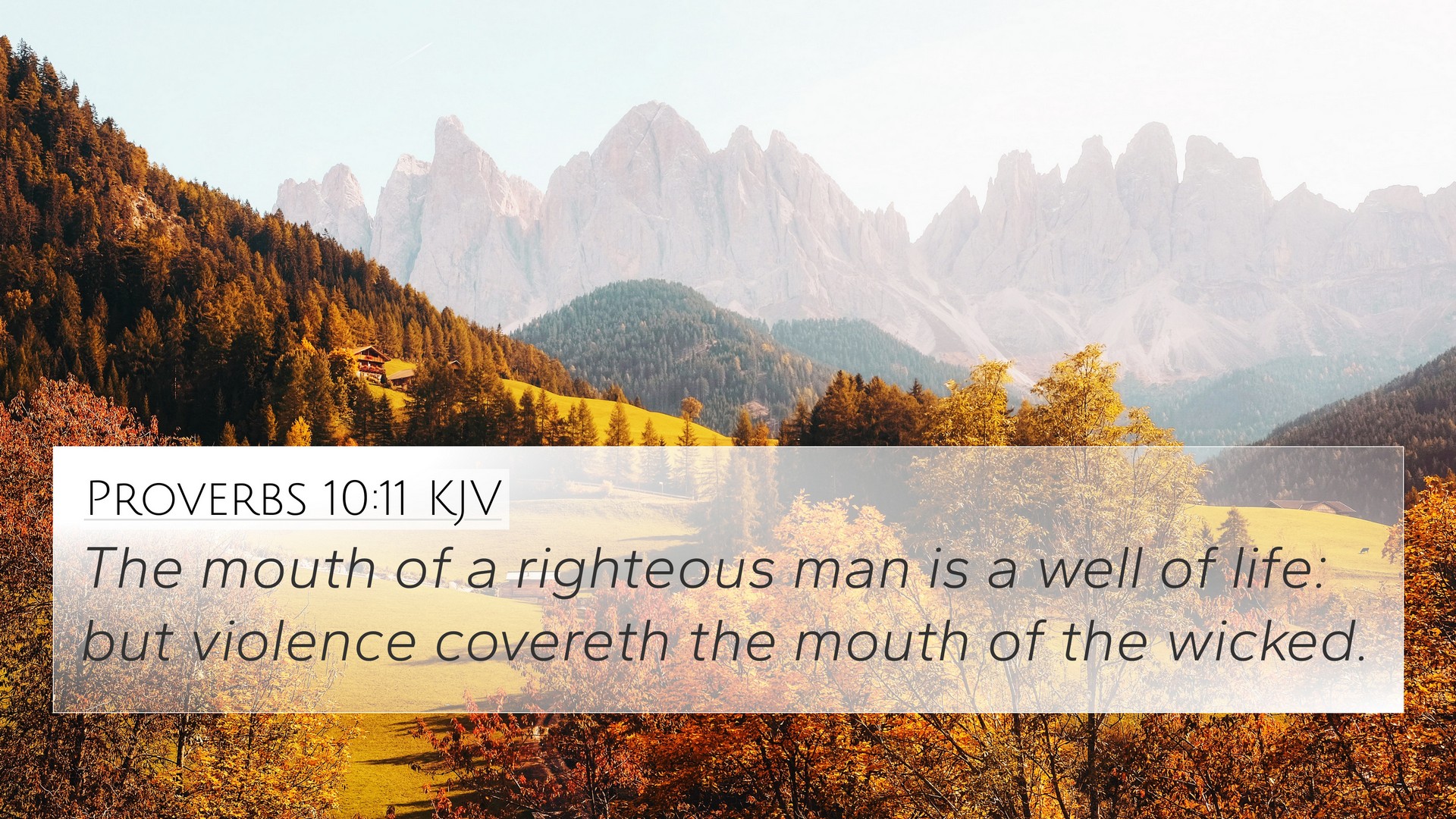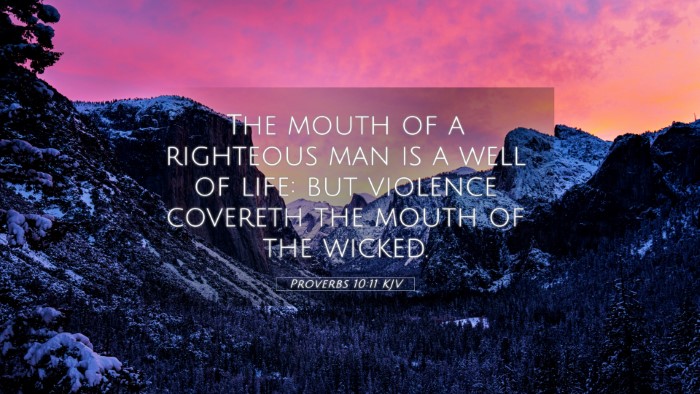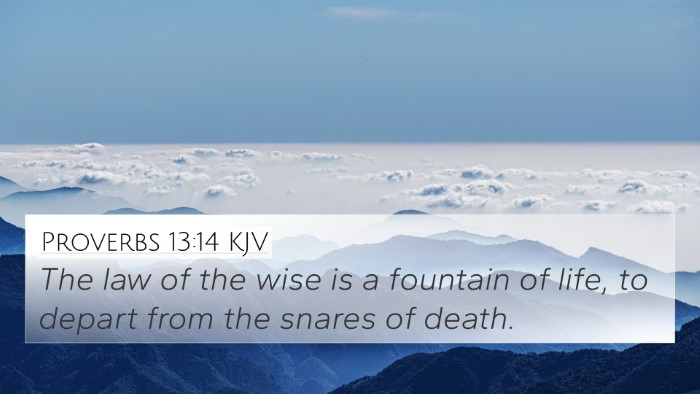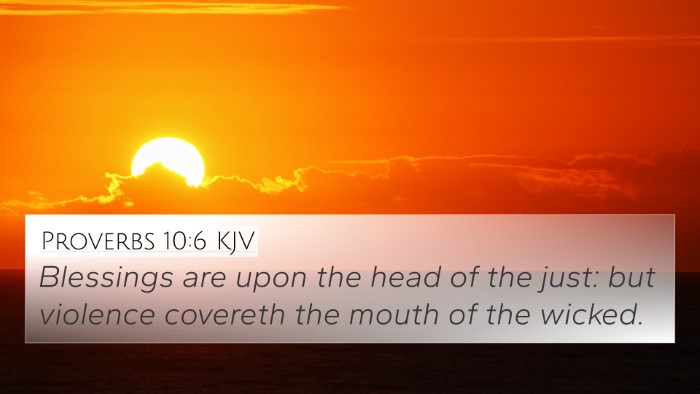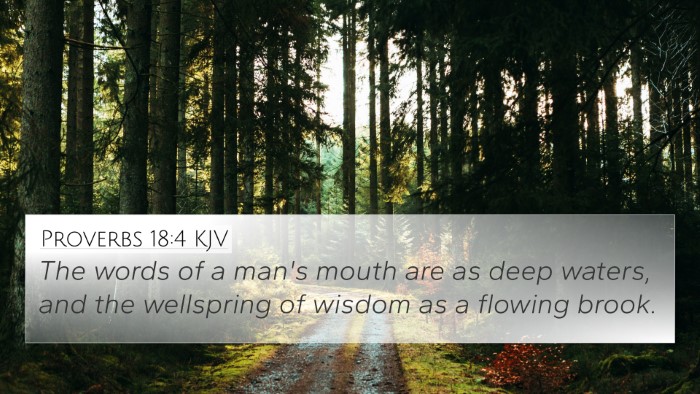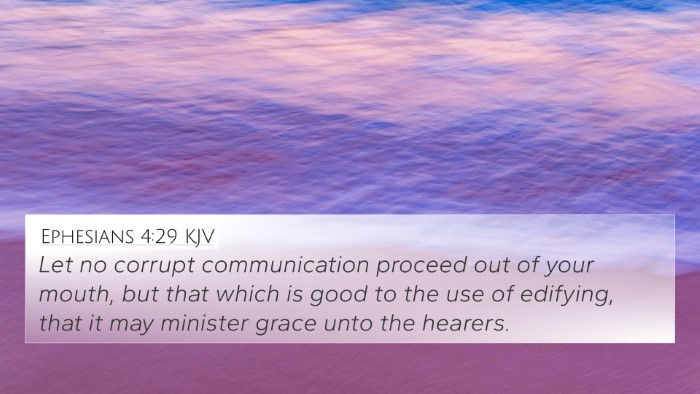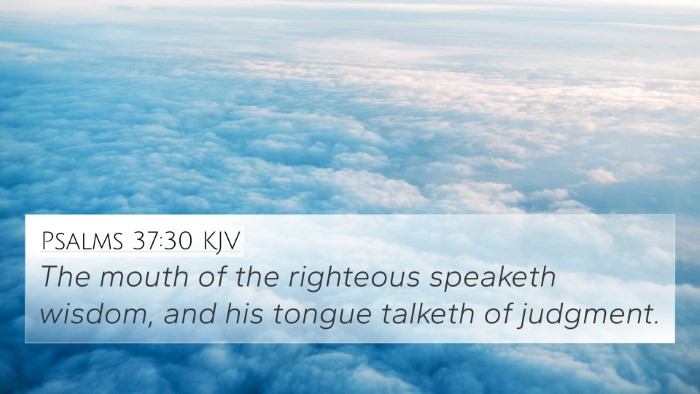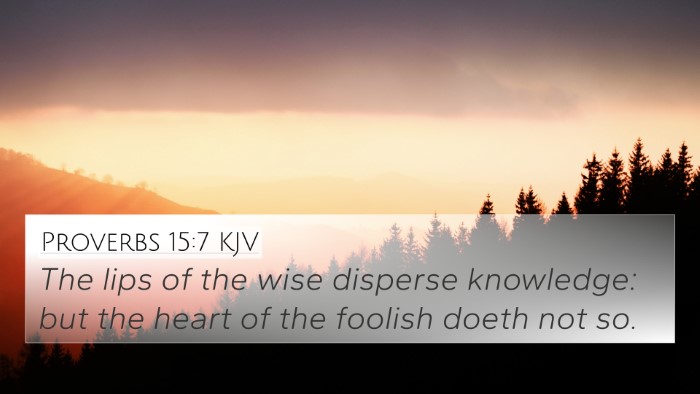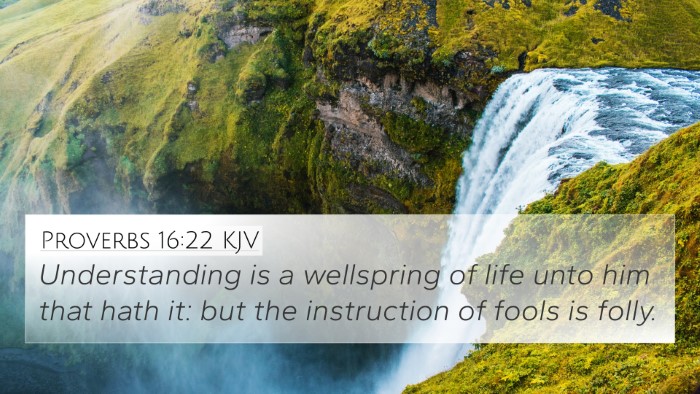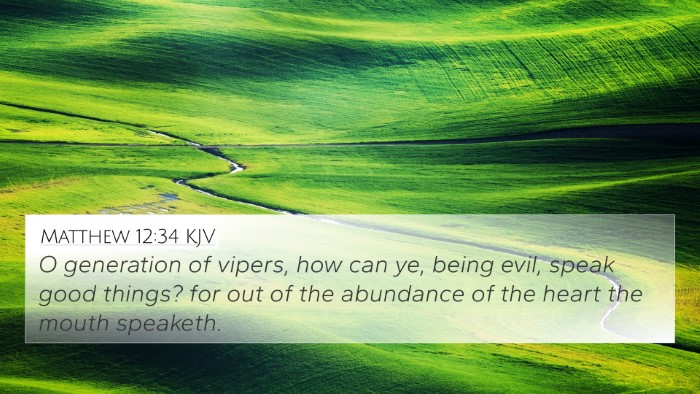Understanding Proverbs 10:11
Proverbs 10:11 (KJV): "The mouth of a righteous man is a well of life: but violence covereth the mouth of the wicked."
Verse Summary
This verse contrasts the speech of the righteous and the wicked, highlighting the life-giving nature of the words of the righteous compared to the destructive tendencies of the wicked. The metaphor of a "well of life" suggests that righteous speech provides nourishment, encouragement, and hope, akin to how water sustains life. In contrast, the mouth of the wicked is associated with violence, suggesting that their words bring harm and destruction.
Commentary Insights
The various commentaries provide rich insights into this verse:
-
Matthew Henry:
Henry notes that a righteous person's words are filled with wisdom and truth, refreshing the soul and leading others toward good. The imagery of a well emphasizes the abundance and sustenance offered by wholesome words, crucial for spiritual and emotional well-being. In contrast, the violence associated with a wicked individual's speech denotes the destruction and turmoil they bring to themselves and others.
-
Albert Barnes:
Barnes points out that the metaphor of a "well" indicates depth and richness in the righteous man's speech. He elaborates that the righteous use their words to uplift, teach, and guide, thus creating a positive environment. The contrast with the wicked reveals the detrimental impact of their words, which can sow discord and chaos in society.
-
Adam Clarke:
Clarke highlights that the divine order established in speech is crucial—the righteous man’s speech is likened to a wellspring, suggesting vitality and renewal, while the wicked's speech leads to destruction. He stresses the importance of choosing our words wisely, noting that the effects of our speech can have far-reaching consequences.
Bible Verse Cross References
This verse is interwoven with several other biblical themes and scriptures, creating a tapestry of connections:
- James 3:10: "Out of the same mouth proceedeth blessing and cursing. My brethren, these things ought not so to be." - This verse enhances the theme of speech's dual potential for good or evil.
- Proverbs 18:21: "Death and life are in the power of the tongue: and they that love it shall eat the fruit thereof." - Reinforces the power of words, aligning with the idea of the righteous creating life through their speech.
- Matthew 12:34: "For out of the abundance of the heart the mouth speaketh." - This emphasizes the connection between the speaker's character and the content of their speech.
- Proverbs 15:4: "A wholesome tongue is a tree of life: but perverseness therein is a breach in the spirit." - Offers a similar contrast between wholesome and harmful speech.
- Psalm 37:30: "The mouth of the righteous speaketh wisdom, and his tongue talketh of judgment." - Connects righteousness with wise speech.
- Proverbs 12:18: "There is that speaketh like the piercings of a sword: but the tongue of the wise is health." - Highlights the impact of words, similar to Proverbs 10:11.
- Proverbs 16:24: "Pleasant words are as an honeycomb, sweet to the soul, and health to the bones." - This reinforces the life-giving aspect of righteous speech.
Thematic Connections
In a broader sense, Proverbs 10:11 invites readers to reflect on the significance of their words. It suggests critical questions for personal reflection:
- How do our words reflect our inner character?
- In what ways can we foster an environment of life-giving speech in our communities?
- What practical steps can we take to ensure our speech is aligned with righteousness?
Conclusion
Ultimately, Proverbs 10:11 serves as a powerful reminder of the choices we make in our speech. By aligning our words with righteousness, we not only nourish ourselves but also others, highlighting the interconnected nature of biblical wisdom. The intertwining of verses, such as those discussed, provides profound insights into the overarching themes of life, death, and the significance of our words within the Scripture.
